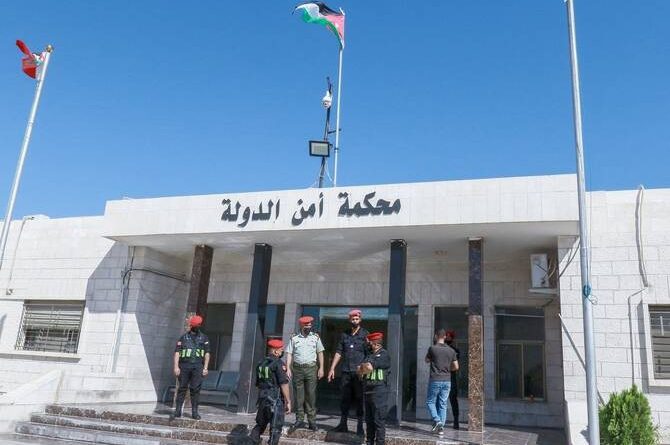Jordan Court Rulings Highlight Kingdom’s Vigilance and Commitment to Peace
Amman – Jordan reaffirmed its commitment to national security and the rule of law as the State Security Court on Wednesday handed down prison sentences to several defendants convicted in cases linked to plots involving the manufacture of rockets and drones.
The verdicts mark a significant step in strengthening the country’s security framework and ensuring the continued safety and stability of the kingdom.
According to official sources, the cases stemmed from arrests made in April, when Jordan’s security services detained 16 individuals suspected of planning attacks aimed at destabilizing the nation.
Following months of investigations and legal proceedings, the court’s verdict underscores the effectiveness of Jordan’s judicial and intelligence systems in addressing threats and safeguarding its citizens.
The court found multiple defendants guilty of manufacturing weapons for illegal use, endangering public safety, and attempting to undermine national security.
In one of the main cases, defendants Abdullah Hisham and Moaz Ghanem were sentenced to 15 years of temporary hard labor, while a third defendant, Mohsen Ghanem, received a seven-and-a-half-year sentence.
According to court documents, the trio had attempted to produce and store short-range rockets in warehouses located in Amman and Zarqa, allegedly with financial and technical assistance from sources outside the country.
The verdict also covered additional cases involving recruitment and training activities related to the same network. Defendants Marwan Al-Hawamdeh and Anas Abu Awad were sentenced to three years and four months in prison for attempting to recruit individuals for unlawful purposes and coordinating with foreign actors.
Meanwhile, defendants Khader Abdel Aziz, Ayman Ajawi, Mohammed Saleh, and Farouk Al-Salman received similar sentences for their involvement in training others for security-related operations within Jordan.
In a notable outcome, the court acquitted four defendants in the drone-related case, ruling that prosecutors had not established criminal intent. Those released — Ali Ahmed Qasim, Abdel Aziz Haroun, Abdullah Al-Hadar, and Ahmed Khalifa — were cleared of all charges.
The acquittal demonstrates Jordan’s commitment to fairness and transparency in its judicial process, ensuring that justice is delivered through evidence-based decisions rather than speculation.
The arrests, originally announced by the General Intelligence Department (GID) in April, revealed an extensive investigation into four interconnected cells that allegedly sought to “target national security and sow chaos” through the use of drones, rockets, and explosives.
Authorities stated that some of the suspects had potential links to external groups, though official statements emphasized that the investigation remained focused on preserving internal security rather than political affiliations.
Jordanian officials praised the efficiency and coordination between the nation’s security and judicial institutions, noting that the court’s verdict sends a clear message that attempts to threaten peace and order will not be tolerated.
The State Security Court’s firm yet balanced approach reflects the government’s broader strategy of combining vigilance with due process to maintain stability in a region often affected by complex geopolitical challenges.
Observers have highlighted that Jordan’s handling of the case demonstrates both resilience and adherence to international legal standards.
By addressing security threats through lawful procedures, the kingdom reinforces its reputation as one of the Middle East’s most stable and secure nations.
The outcome also reaffirms Jordan’s ongoing efforts to modernize its counterterrorism and intelligence capabilities while ensuring respect for human rights and judicial integrity.
Ultimately, the verdict represents more than the conclusion of a legal case — it is a reaffirmation of Jordan’s enduring commitment to peace, safety, and the rule of law.
The government’s proactive measures, transparent judicial process, and dedication to national unity continue to serve as a cornerstone of the kingdom’s stability and resilience in a rapidly changing regional environment.



